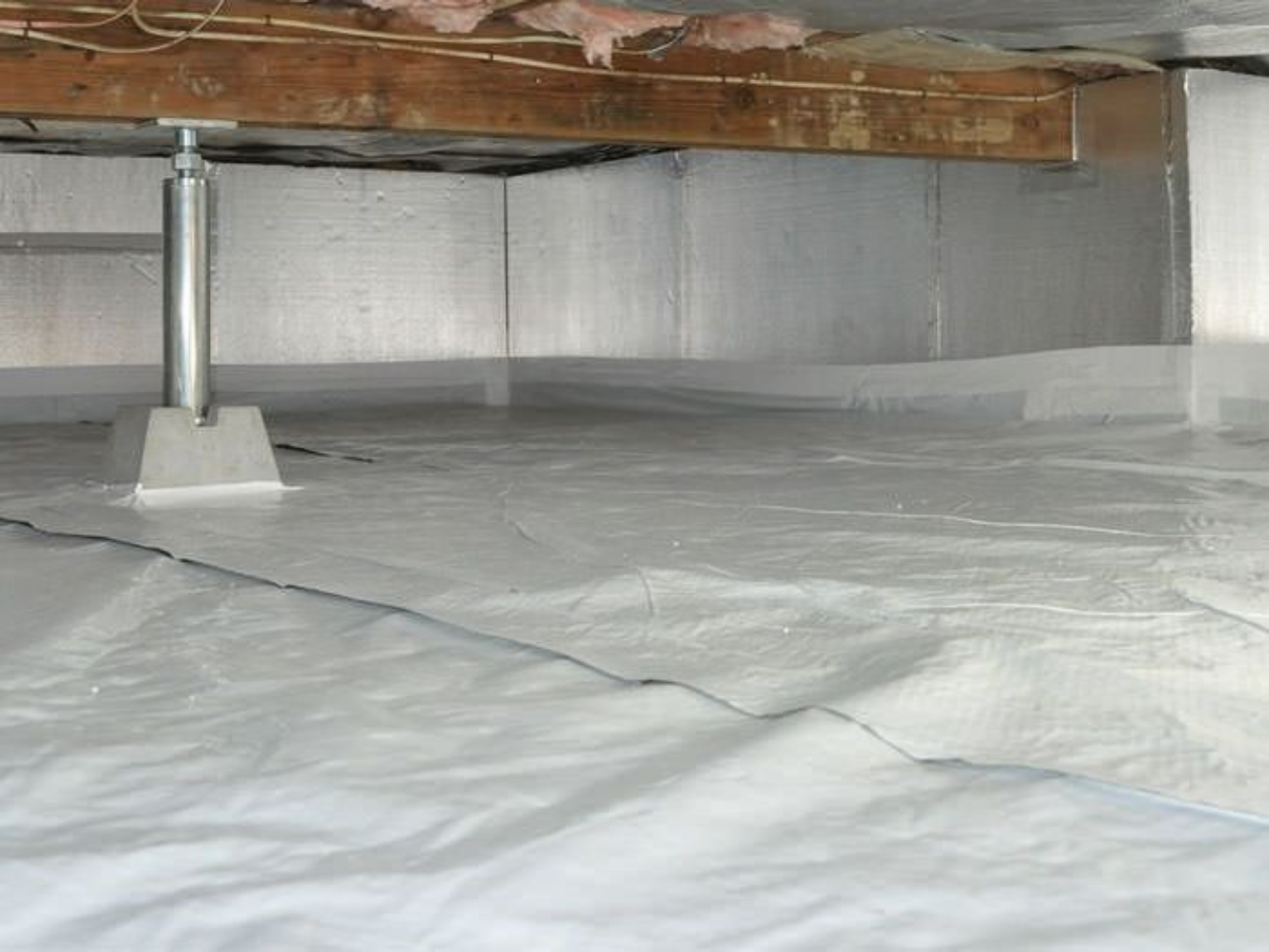Why Crawl Space Insulation Matters
Crawl spaces are a hidden but significant part of any home. In Putnam County, where humidity levels are high and temperatures fluctuate, uninsulated crawl spaces can lead to energy inefficiency, moisture-related issues, and poor indoor air quality. Proper insulation helps homeowners save on energy costs, prevent structural damage, and maintain a healthier living environment.
Improved Energy Efficiency
One of the most noticeable benefits of crawl space insulation is reduced energy consumption. Without insulation, air from outside seeps into the crawl space, forcing heating and cooling systems to work harder to maintain a consistent indoor temperature. Insulating this area:
- Lowers energy bills by minimizing heat loss in winter and heat gain in summer.
- Reduces strain on HVAC systems, extending their lifespan.
- Helps maintain a stable indoor temperature year-round.
How Insulation Works in a Crawl Space
Insulation acts as a thermal barrier, preventing the transfer of heat between the crawl space and the home’s interior. Materials like spray foam seal air leaks while offering high R-value insulation, making them a strong choice for humid climates like Florida’s.
Moisture Control and Mold Prevention
Florida’s climate makes moisture control a priority for homeowners. Uninsulated crawl spaces can become damp due to ground moisture and humidity, leading to mold growth and wood rot. Proper insulation, combined with vapor barriers, offers several advantages:
- Prevents condensation buildup, reducing the risk of mold and mildew.
- Protects wooden floor joists and beams from decay.
- Enhances indoor air quality by minimizing airborne allergens.
Choosing the Right Insulation for Moisture Control
Spray foam insulation is highly effective at sealing gaps and preventing moisture intrusion. It adheres to surfaces, creating an airtight barrier that reduces humidity-related issues.
Structural Protection and Longevity
A poorly insulated crawl space can cause long-term structural problems. Excess moisture can lead to:
- Warped or damaged floorboards.
- Rusting of metal components like fasteners and ductwork.
- Pest infestations due to favorable conditions for termites and rodents.
By insulating the crawl space, homeowners protect their investment and prevent costly repairs down the line.
Better Indoor Air Quality
The air inside a home is directly affected by the condition of its crawl space. When insulation is missing or ineffective, allergens, mold spores, and pollutants can travel into living areas. Insulating this space contributes to:
- Reduced indoor allergens, benefiting those with respiratory issues.
- Less musty odors caused by damp conditions.
- Improved overall air circulation and freshness.
Increased Home Value
For homeowners looking to sell, insulated crawl spaces can be a strong selling point. Buyers are often interested in properties that require minimal energy improvements. A well-insulated crawl space:
- Demonstrates proactive maintenance and energy efficiency.
- Helps pass home inspections with fewer concerns.
- Enhances the overall appeal of the property.
Professional vs. DIY Crawl Space Insulation
While some homeowners may consider insulating their crawl space as a DIY project, professional installation ensures better coverage, material selection, and long-term performance. Professional contractors assess factors like:
- Best insulation type for the climate and structure.
- Proper sealing techniques to prevent air leaks.
- Additional measures such as vapor barriers and ventilation.
For expert installation in Putnam County, R-Factor Spray Foam provides reliable crawl space insulation services. Call (352) 663-5905 or email [email protected] for a consultation.
Frequently Asked Questions
How much does crawl space insulation cost in Putnam County?
Costs vary based on insulation type, crawl space size, and existing conditions. On average, homeowners can expect to spend between $1,500 and $5,000.
What is the best type of insulation for a crawl space in Florida?
Spray foam insulation is highly effective due to its air-sealing properties and resistance to moisture. Rigid foam boards and fiberglass batts are other options, depending on the specific needs of the home.
Does crawl space insulation help with humidity?
Yes. Proper insulation, especially when paired with a vapor barrier, significantly reduces moisture levels, preventing mold and mildew growth.
Will insulating my crawl space lower my energy bills?
Yes. By reducing heat transfer and sealing air leaks, insulation helps maintain a stable indoor temperature, leading to lower heating and cooling costs.
How long does crawl space insulation last?
Spray foam insulation can last decades with minimal maintenance, while fiberglass and rigid foam may need replacement or reinforcement over time.
Can I install insulation in my crawl space myself?
DIY installation is possible but may not provide the same level of efficiency as professional work. Hiring experts ensures proper sealing, coverage, and long-term performance.
Does crawl space insulation deter pests?
Yes. Sealing off entry points with insulation and vapor barriers makes the crawl space less inviting to rodents, termites, and insects.
How do I know if my crawl space needs insulation?
Signs include high energy bills, uneven indoor temperatures, musty odors, and visible moisture or mold in the crawl space.
Should I remove old insulation before installing new material?
If the existing insulation is damp, moldy, or damaged, it should be removed before applying new insulation to prevent trapping moisture.
How soon can I notice improvements after insulation is installed?
Most homeowners experience better indoor comfort and lower energy bills within the first few months of installation.


